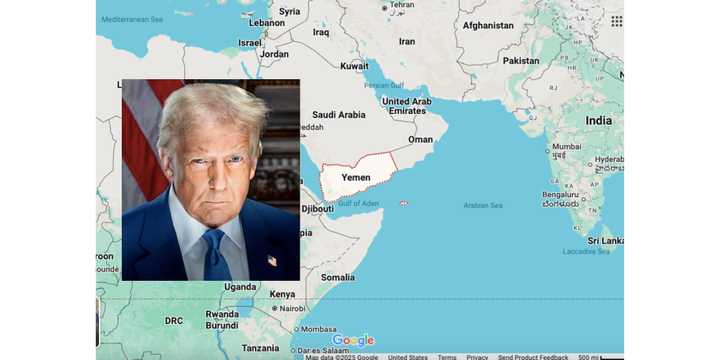New details have emerged on the massive mistake, including the names of the senior US officials who were involved in the group chat at the center of the situation.
Jeffrey Goldberg, the editor-in-chief of The Atlantic, wrote in a story published Monday afternoon, March 24 that US national security leaders included him in an encrypted Signal messaging group chat about military strikes against a rebel group in Yemen earlier this month.
"I didn't think it could be real," Goldberg said. "Then the bombs started falling."
Goldberg said he received the info on Saturday, March 15, two hours before it was announced at around 2 p.m. that day that the strikes had hit Yemen.
"The reason I knew this is that Pete Hegseth, the secretary of defense, had texted me the war plan at 11:44 a.m.," Goldberg wrote. "The plan included precise information about weapons packages, targets, and timing."
It's unclear who added names of recipients to the group chat, but Goldberg said he received an invitation to join the chat from National Security Advisor Mike Waltz days before the attack.
Speaking to reporters at the White House about two-and-a-half hours after news of the leak broke, Trump, standing next to Speaker of the House Mike Johnson, said, “I don’t know anything about it. You’re telling me about it for the first time.”
He then added, "I’m not a big fan of The Atlantic. It’s, to me, it’s a magazine that’s going out of business. I think it’s not much of a magazine. But I know nothing about it.”
White House press secretary Karoline Leavitt said late Monday afternoon that Trump had the “utmost confidence in his national security team."
The US attack targeted Iran-backed Houthi rebels, who had targeted commercial ships and Israel.A total of 18 people were involved in the chat, including Hegseth and Waltz, as well as:
- Vice President JD Vance,
- Secretary of State Marco Rubio,
- CIA Director John Ratcliffe,
- Director of National Intelligence Tulsi Gabbard,
- White House Chief of Staff Susie Wiles,
- Deputy Chief of Staff Stephen Miller.
Vance expressed opposition to the planned action, The Atlantic reported, saying he argued that the Houthi attacks in the region affect European trade more than US trade, and that he said, "I just hate bailing out Europe again."
"I am not sure the president is aware how inconsistent this is with his message on Europe right now," Vance wrote, according to Goldberg. "There's a further risk that we see a moderate to severe spike in oil prices."
Hegseth reportedly responded: "VP: I share your loathing of European freeloading. It's pathetic."
The use of the Signal app to discuss war plans may violate the Espionage Act, because classified information was shared on an unclassified system, and could have jeopardized national security and the lives of members of the US military involved in the operation.
Click here to read the complete report in The Atlantic.
This continues to be a developing story. Check back to Daily Voice for updates.
Click here to follow Daily Voice Milford Mill and receive free news updates.
